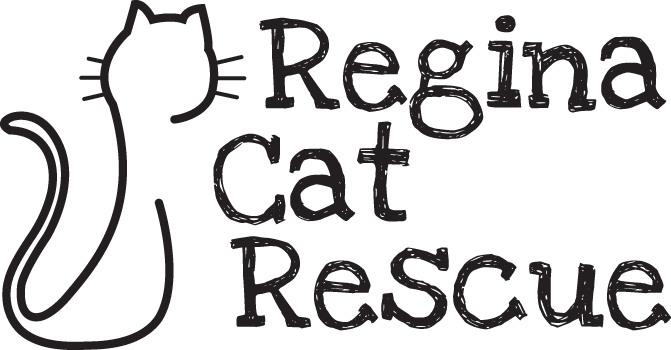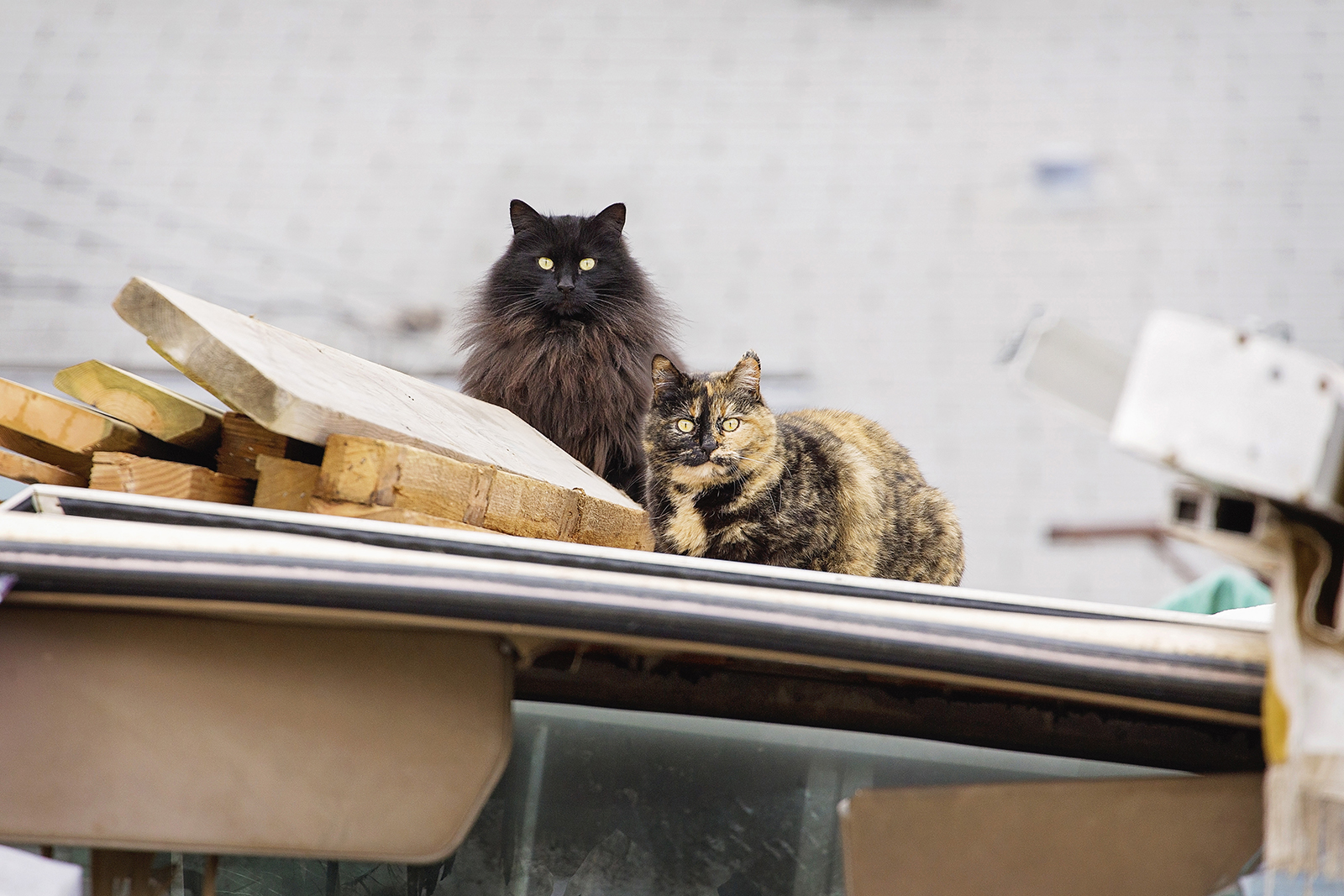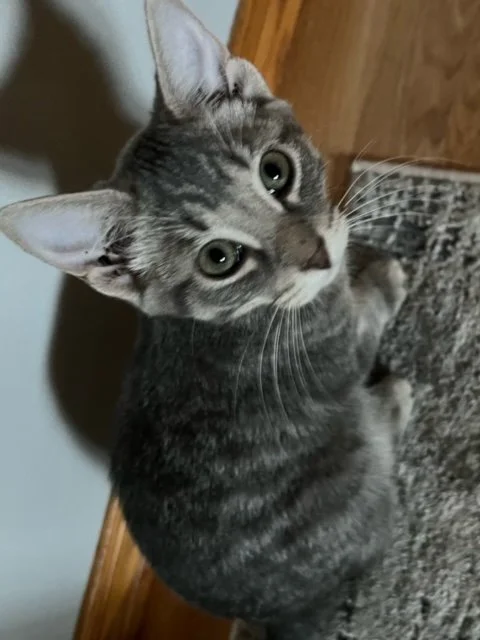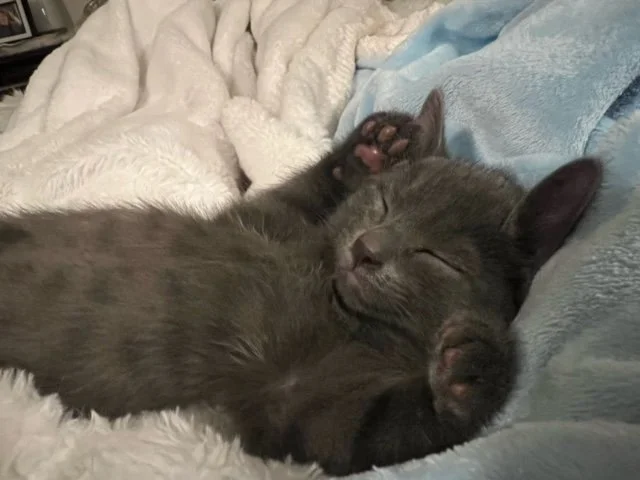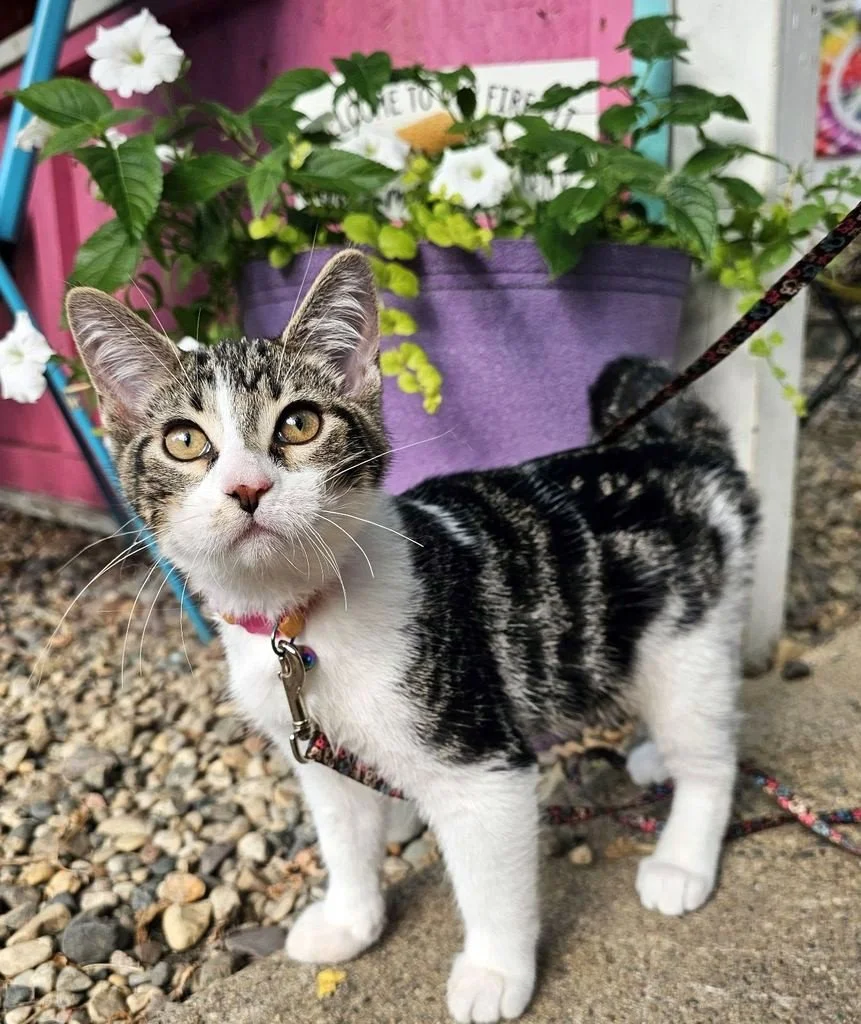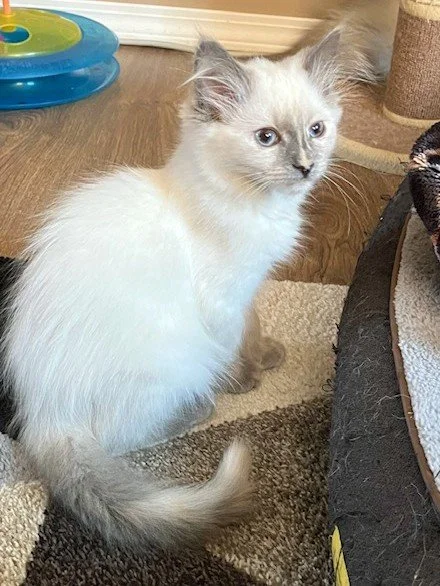Meet our volunteers: Brayan Hill
/Brayan is a long-time Regina Cat Rescue volunteer with lots on her plate! She has four cats of her own - Jag, Charm, Macho and Amigo - and a very loving and tolerant dog named Hemmi. Currently, she two foster cats Kola and Piepurr and provides ongoing care and support to many cats in her community.
Besides being an advocate for Regina's cats and a dedicated RCR volunteer, Brayan is an avid crafter, a huge Rider fan and a mother to two-year-old Lennyn. Having worked in healthcare for most of her career, Brayan knows a thing or two about compassion and kindness - traits that she works hard to instill in her daughter.
Brayan took a break from her busy schedule to answer some of our questions about her volunteer duties, the special cats in her life and what motivates her to keep volunteering.
Brayan poses with a recent rescue, Reko
How did you get involved with RCR?
As one person I was struggling to help the many stray and abandoned cats in my neighbourhood so I reached out to Regina Cat Rescue (RCR) - back then called People for Animals - for help and to see how I could get involved. I would never have been able to make the difference to so many cats without the RCR team. I will be forever grateful to all the wonderful people that have dedicated so much of their time to this organization!
What is your role with RCR and typical volunteer duties?
I enjoy helping in every aspect of this organization where I can, so I volunteer in a few different ways. I'm a community cat feeder which means once a week I go on a route to 12 feeding stations in north central to make sure the kitties have adequate food, shelter and water. I also have a feeding station at my home where I practice trap, neuter, return (TNR) as I know how critical this help is to so many cats. I foster cats whenever possible until they find their forever homes - and yes a few times have been a foster fail! I visit foster homes to administer vaccines and treatments to the cats while they are in foster care, and whenever possible I try to help out with adoption events and fundraisers. But I'd like to think my most important role is spreading the word about what RCR does, growing awareness about the cat population and being the voice for those that can't speak for themselves!
What's the most rewarding part of volunteering with RCR?
The most rewarding part to me is helping get cats off the street, getting them the vet care they need and into warm loving homes. I look at it this way - when you help animals you help yourself, and so many have touched my life in so many ways! When you know you have made a difference in the life of an animal is the greatest reward of all. Also, the people I have met along the way are the most compassionate people I have ever met.
Brayan socializing a formerly feral kitten named Piepurr.
What's the most challenging part?
For me it's seeing how big the problem really is. There are so many kitties who are homeless and hungry living in our community. There are animals that are hurt and have no where to go. There are irresponsible pet owners who let their cats out subjecting them to pregnancy, disease and worse. I've experienced a lot of heartbreak, but RCR helps lift some of "the weight of the world" feelings with their efforts.
What motivates you to volunteer?
The happy endings! And working as a team to help a cat in need and watching the cat get the happily ever after that they all deserve! Also, the faces that meet me in my yard daily that count on me for their food, shelter, and I would like to think, my companionship.
Do you have any memorable or special moments from your time as an RCR volunteer?
I have them daily! My most memorable are the feral cats that become friends. Having cats that I have worked with daily for months and even years that learn to trust me enough to help them to a better life. It absolutely warms my heart and they don't even know how much of a difference they have made in my life!
In particular, I must mention a long-time friend Mr. B! I worked with him over a year. At first, he lived under my deck and for most of the first year I could not get near him. One day he decided to let me in - I could pet him, pick him up and hold him so tight. It was like he knew we were meant to cross paths. Today he has his happy ending of a furrever home! I will never forget how this animal touched my life forever - to know him was to love him!
Secondly, the good people that adopt from RCR. Many have become my friends and send me regular updates on their lives together - this means more to me than words can ever say!
How do you balance volunteering with your other commitments?
It has become second nature. It's my calling in life - it's just what I do. I will always have time to help and be there for my feline friends that need me. I will never be too busy for them. They can always count on me as a friend who has their back.
What would you tell someone thinking of volunteering with RCR?
I would say look at it as paying it forward. Kindness breeds kindness. There are so many areas of RCR to get involved and many hands make for light work! Plus, love and kindness are never wasted. They always make a difference. They bless the one who received them and they bless you the giver. I have nothing but good things to say about RCR and we would be so gracious (along with the kitties) to be blessed by your help!
Lennyn helps out with socializing Piepurr
Piepurr has made great strides thanks to Brayan and Lennyn, and will be available for adoption in the coming weeks.
- Interview by Rachel Molnar
If you're interested in volunteering with Regina Cat Rescue, please check out the volunteer job descriptions and complete a volunteer application form. Additional volunteer opportunities can be found on our upcoming events page.
